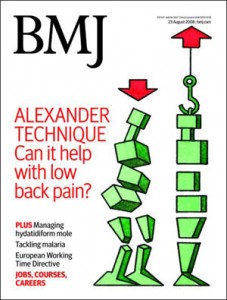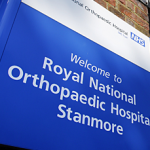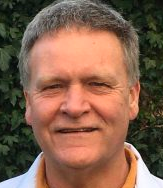Chronic Pain
I recommend people to the Alexander Technique who have not improved with traditional rehabilitative therapies. Part of their pain may be due to posture and the improper use of their bodies. Many people who have neck or back pain and have gone through heat, ultrasound and massage with no relief can be helped by learning the Alexander Technique. It definitely works.
Barry M. Scheinfeld, MD
Specialist in Rehabilitation Medicine and Pain Management,
Community General Hospital, Harris, NY
- Back Pain
- Sciatica
- Neck Pain
- Whiplash
- Disc Pain
- Osteoarthritis
- Joint Pain
- RSI
- Headaches/Migraine
- Ankylosing Spondylitis
- Fibromyalgia
Chronic (long term) pain is one of commonest reasons that people turn to the Alexander Technique. It is a drug free method, but is generally not available on the NHS. Research in 2011 in a NHS trial in Bristol showed that patients using the Alexander Technique were able to stop or considerably reduce their pain medication. In 2008, a Randomised Controlled Trial of 579 NHS patients suffering Low Back Pain was published in the British Medical Journal. It showed an 86% reduction in pain for patients using the Alexander Technique.
Conventional medical treatment of chronic pain is often limited to management of the condition. If however, the source of your pain is muscular or postural, the Alexander Technique may give you the means to eliminate it completely.
The Alexander Technique gives you a better way to understand how your body works. Through a course of one-to-one sessions with an Alexander Technique teacher, you learn to sense and release the stress and muscular compression that can compound pain. As you shift your entire system from a state of overarousal to a state of calm, you can lessen your pain and give your body a chance to heal.
Research
Back Pain Trial carried out in 64 general practices in England.

A 2008 randomised controlled trial. A total of 579 people with chronic or recurrent low back pain were randomised to one of the following 4 groups:
- 1. Usual care from their GP
- 2. 6 sessions of therapeutic massage
- 3. 6 Alexander Technique lessons
- 4. 24 Alexander Technique lessons
Conclusion: Most benefit was provided by 24 Alexander lessons. Second most effective was 6 Alexander lessons. After 1 year, individuals with back pain who had undertaken Alexander lessons had only 3 days of pain per month compared with 21 days for similar patients who were receiving the usual standard-of-care from their GP. 24 Alexander lessons led to:
- 86% reduction in number of days in pain
- ability to carry out on average 3 more types of daily task without limitation from back pain
- significantly improved quality of life
Little P, Lewith G, Webley F, et al. Randomised controlled trial of Alexander Technique lessons, exercise and massage (ATEAM) for chronic and recurrent back pain.
Research
Chronic Pain Trial at Royal National Orthopaedic Hospital, Stanmore.

Royal National Orthopaedic Hospital
A study of the effectiveness of 13 therapies used in a pain management clinic was carried out at the Royal National Orthopaedic Hospital, Stanmore, Middlesex. Questionnaires measuring this were administered at the end of the course, 3 months later and 1 year later.
Conclusion: The patients rated the Alexander Technique the best of 13 activities used.
Fisher K et al. ‘Early experiences of a multidisciplinary pain management programme.’ Holistic Medicine 3:47-56, 1988.
Early experiences of a multidisciplinary pain management programme
Research
Chronic Pain Trial at St Michael’s Hospital’s NHS Pain Clinic in Bristol.

St Michaels Hospital Bristol
The research involved forty-three patients with chronic or recurrent pain who ‘were not getting better or responding to conventional treatment’. They received six consecutive weekly one-to-one Alexander Technique lessons from a STAT registered Alexander Teacher.
Conclusion: The research showed a dramatic decrease in the need for medication: More than half of the service users who took part in a service evaluation project stopped or reduced their use of medications between the start of the lessons and three months.
McClean, S and Wye, L (2012) Taking charge, choosing a new direction: A service evaluation of Alexander Technique lessons for pain clinic patients (SEAT): An approach to pain management.
Study reveals the benefits of Alexander Technique lessons for sufferers of chronic pain
Ongoing Research…
Neck Pain Trial

A major 3 year UK trial starting October 2011 at the University of York. Funded by Arthritis Research UK. It is investigating the effectiveness of two separate therapies for people with chronic neck pain compared with usual GP care. The therapies are:
- Alexander Technique
- Acupuncture.
In this trial, people with chronic neck pain are being randomised to one of three groups:
- Alexander Technique lessons from STAT registered teachers (total time 600 minutes across 20 lessons), with continued GP care
- Acupuncture sessions (total time 600 minutes across 12 sessions), with continued GP care
- continued GP care alone
Pain and disability associated with neck pain will be assessed over 1 year, along with measures of quality of life, participant beliefs and experience, cost effectiveness and safety. The trial is not designed to be a direct comparison of Alexander lessons and Acupuncture, rather it will compare each of these with usual GP care.
What people say
Anxiety and chronic pain
After a close family member was diagnosed with terminal cancer, I started suffering from severe anxiety. This resulted in the muscles in my back, neck and shoulders to become stiff and painful. Over time, I was convinced I had a physical problem with my back which then made the anxiety symptoms worse. Over the past 3 years I have visited doctors, consultants, physiotherapists, chiropractors, osteopaths, massage therapists and hypnotherapists. I was also sent for an MRI scan of my whole spine which came back normal.
So I decided to try the Alexander Technique. I look forward to my lessons each week and feel so much better mentally and physically. I am now beginning to see certain situations I come across in life as a challenge rather than a stressful problem.
I would thoroughly recommend Derek to anyone with similar problems to mine. I just wish I had known about this technique before wasting my money on other therapies, which were helping, but not dealing with the root cause of my problems.
Suzanne



